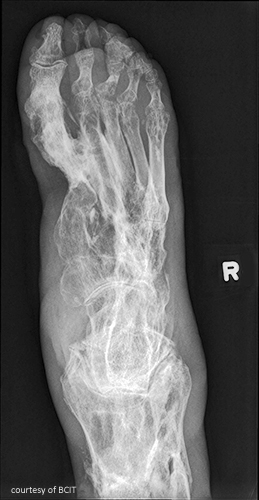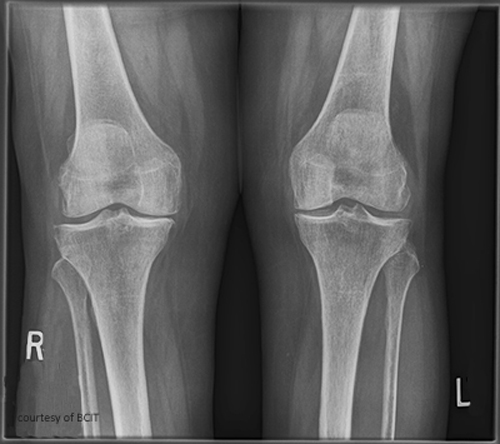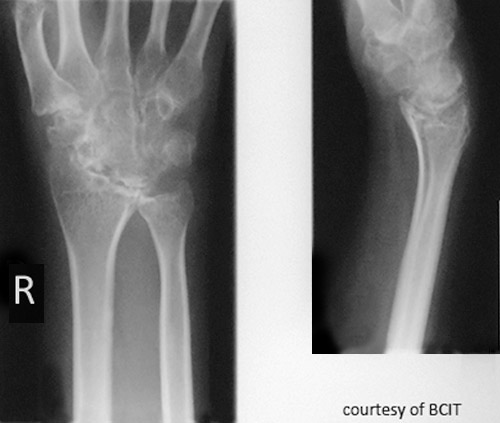2218- mod 10
1/4
There's no tags or description
Looks like no tags are added yet.
Name | Mastery | Learn | Test | Matching | Spaced |
|---|
No study sessions yet.
5 Terms
Osteomyelitis
commonly occurs in the metaphyseal area of the bone and can spread to the surface. most common in the lower extremities but can also occur in vertebrae. most common in children under five with a higher incidence in males. This is a secondary infection caused by staphylococcal bacteria- may remain dormant. develops in phases (formation of a sequestrum, formation of involucrum, formation of a new irregular bone around the abscess, migration of staphylococcal bacteria. internal bone is usually thickened with irregular patches of sclerosis = honeycomb effect. good prognosis and treated with antibiotics. complications include necrosis and septic arthritis

Brodie’s abscess
a chronic bone abscess in the metaphyseal area of the bone. this is common in children
Osteoarthritis
associated with activities that continually stress the joints- a degenerative joint disease. (primary and secondary). this is a normal aging process which occurs gradually, occurs after 40 years of age. cumulative effects activity over time and wears down cartilage. symptoms are stiffness, pain from loss of cartilage, decreased mobility. images show a narrowing of joint spaces, osteophytes may be present. Pain killers and lifestyle changes are encouraged for conservative treatment, joint replacement surgery may be an option

Heberden's Nodes
as a result of osteophyte formation of the bone, which gives the hands a bumpy external appearance
Rheumatoid arthritis
most common in females between 25 - (45)- 58). initial sites are bilateral hands, feet then other joints and organs. Elderly occurs in (60+, young in 16-40. Juvenile 16. an autoimmune disease which affects both joints and ST. a non-bacterial inflammatory disease that is polyarthritis, non-specific and can affect any. symptoms are painful swollen joints, fever, fatigue, anemia, chronic pain, weight loss. secondary symptoms = inflammation of nerve ending, vessel walls, and respiratory tract. images will show a rarefaction or sites of osteoporosis. there is no known cure, treatment goal is to alleviate symptoms.
